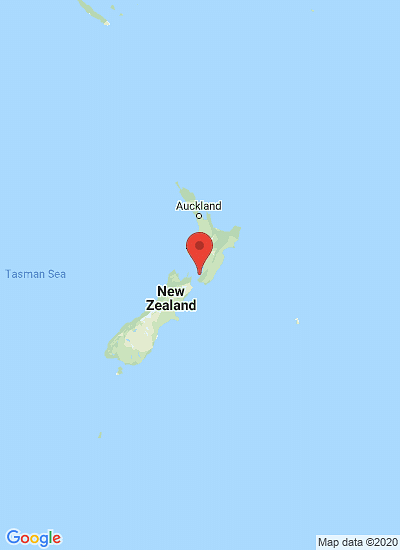Potato Psyllid
New Zealand: new Government funding to fight potato psyllids

New research has been funded through the Ministry of Business, Innovation and Employment, to help the potato industry reduce issues caused by an insect intruder – the tomato-potato psyllid.
The New Zealand potato industry is worth about $470 million, but the tomato-potato psyllid has severely affected the sustainability of the industry. Discovered in New Zealand in 2006, it is estimated that so far the insect, and its associated disease, has cost the industry about 5% of its total value across the value chain in crop losses and control costs.
The psyllid can transfer a bacterium, known as Candidatus Liberibacter solanacearum (Lso), into the potato plant during feeding which affects growth of the plant and causes a disease known as zebra chip in potato tubers. Sugar accumulates in the tuber, which darkens unacceptably when the potato is fried. Potatoes with zebra chip reduce the value of processed potato products, such as fries and crisps, on the export market and reduce the potential growth of the industry, expected to generate export returns of $250 million by 2025.
Through the new funding, scientists at Plant &Food Research will undertake research to develop new control methods for the insect pest, and new cultivars with improved resistance to the psyllid or the zebra chip disease.
“This new funding signals new hope for the potato industry,” says Champak Mehta, CEO of Potatoes New Zealand. “The psyllid has gradually spread across the country since it was first discovered in 2006, and the costs and effort involved in controlling the insect, and the resulting disease, have added significant costs to growers. Having new cultivars with intrinsic resistance to the disease, as well as new technologies to control the insect in the field, will improve both the economic and environmental sustainability of the industry, and allow us get back on course in reaching our full export potential.”
Previous research undertaken by Plant &Food Research has already helped the potato industry reduce costs associated with the psyllid. In the Pukekoke region, monitoring of the psyllid population has demonstrated that early potato crops, harvested in the pre-Christmas period, do not require spraying for the psyllid, due to low insect numbers, saving growers more than $300 per hectare.
Across the country, spray regimes based on insect monitoring programmes, combined with the identification of more sustainable chemical controls effective against the insect, are saving the industry an estimated $1 million annually in control costs.
Source: Plant and Food Research
The New Zealand potato industry is worth about $470 million, but the tomato-potato psyllid has severely affected the sustainability of the industry. Discovered in New Zealand in 2006, it is estimated that so far the insect, and its associated disease, has cost the industry about 5% of its total value across the value chain in crop losses and control costs.
The psyllid can transfer a bacterium, known as Candidatus Liberibacter solanacearum (Lso), into the potato plant during feeding which affects growth of the plant and causes a disease known as zebra chip in potato tubers. Sugar accumulates in the tuber, which darkens unacceptably when the potato is fried. Potatoes with zebra chip reduce the value of processed potato products, such as fries and crisps, on the export market and reduce the potential growth of the industry, expected to generate export returns of $250 million by 2025.
Through the new funding, scientists at Plant &Food Research will undertake research to develop new control methods for the insect pest, and new cultivars with improved resistance to the psyllid or the zebra chip disease.
“This new funding signals new hope for the potato industry,” says Champak Mehta, CEO of Potatoes New Zealand. “The psyllid has gradually spread across the country since it was first discovered in 2006, and the costs and effort involved in controlling the insect, and the resulting disease, have added significant costs to growers. Having new cultivars with intrinsic resistance to the disease, as well as new technologies to control the insect in the field, will improve both the economic and environmental sustainability of the industry, and allow us get back on course in reaching our full export potential.”
Previous research undertaken by Plant &Food Research has already helped the potato industry reduce costs associated with the psyllid. In the Pukekoke region, monitoring of the psyllid population has demonstrated that early potato crops, harvested in the pre-Christmas period, do not require spraying for the psyllid, due to low insect numbers, saving growers more than $300 per hectare.
Across the country, spray regimes based on insect monitoring programmes, combined with the identification of more sustainable chemical controls effective against the insect, are saving the industry an estimated $1 million annually in control costs.
Source: Plant and Food Research
¿Te gustaría recibir noticias como esta por correo electrónico? ¡Únete y suscríbete!
Únete a nuestra Telegrama ¡Canal para actualizaciones periódicas!
Contenido Patrocinado
Contenido Patrocinado
Contenido Patrocinado
Contenido Patrocinado
Contenido Patrocinado







